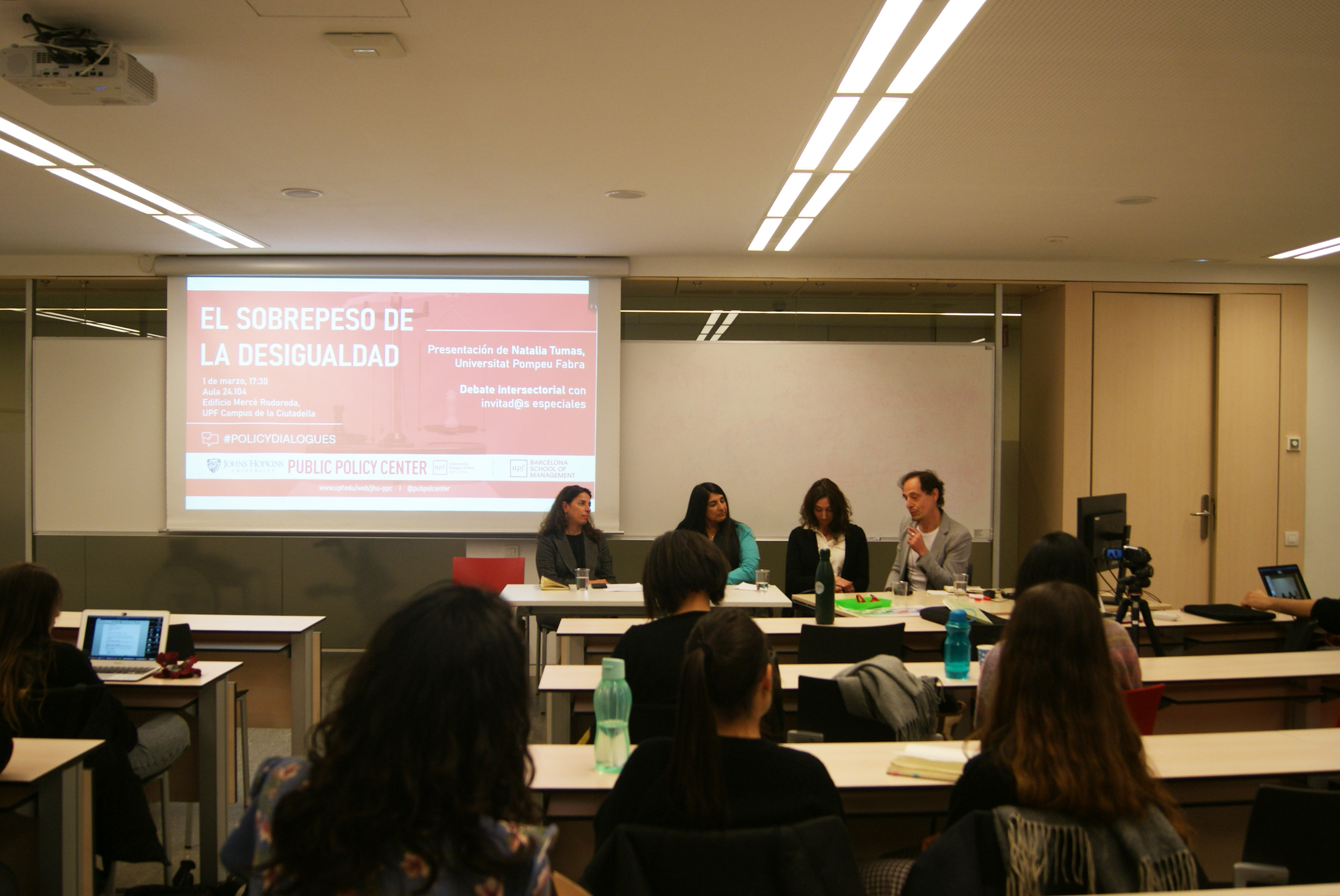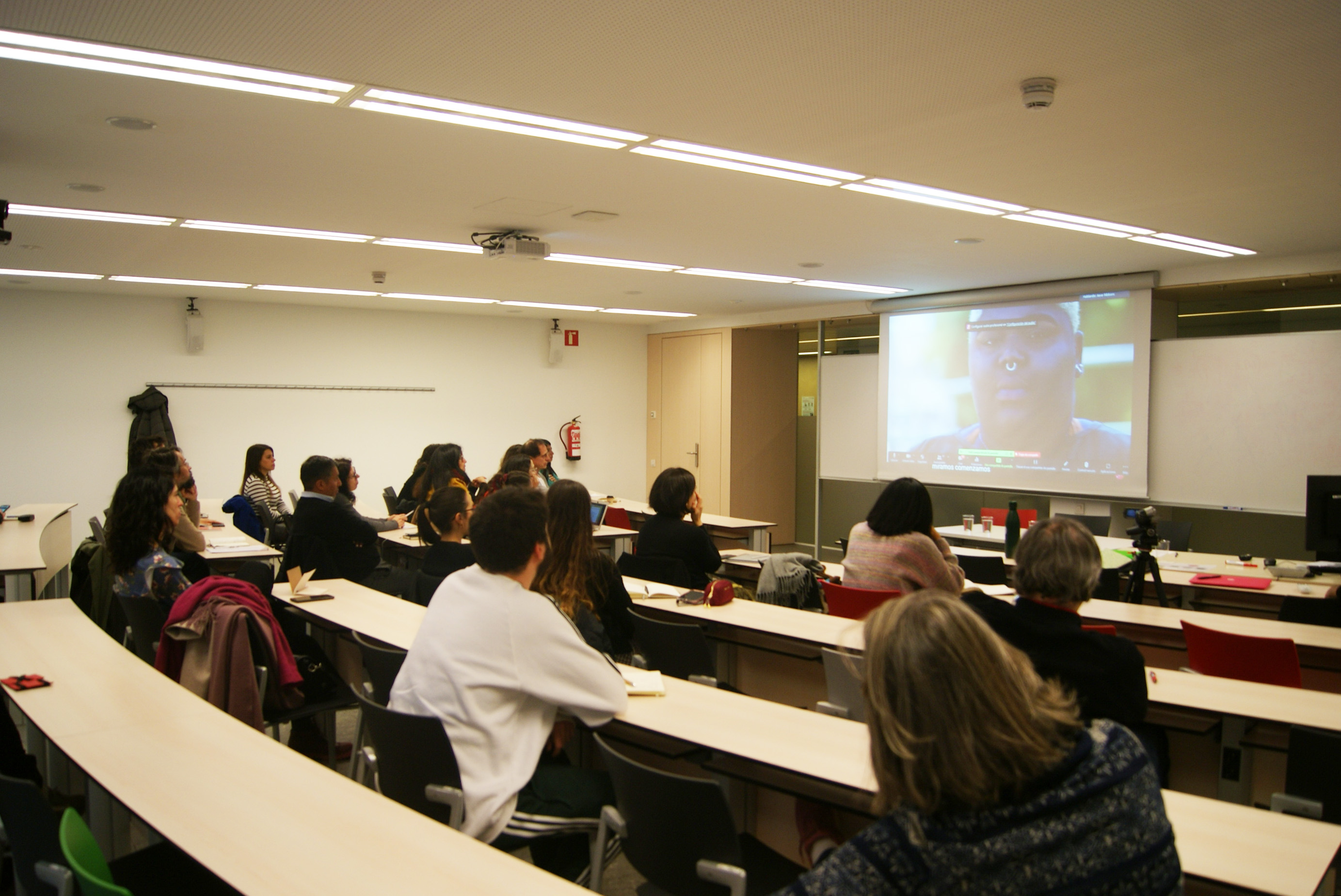
Globally, the prevalence of obesity has tripled since 1975 and, despite decades of interventions, no country has managed to reverse this trend in the adult population. As the speakers of this Policy Dialogue demonstrated, excess weight is a complex and multifactorial problem with social and political determinants that interact at different levels. This therefore should be acknowledged in public policies and interventions to tackle overweight and obesity.
Natalia Tumas, Marie Sklodowska-Curie postdoctoral researcher in the Research Group on Inequalities in Health, Ecology - Employment Conditions Network (GREDS-EMCONET), reflected on the persistent pandemic of excess weight and its large inequalities. She opened the session with some key questions relating to this issue: Why do so many people suffer from excess weight? How is it possible that this pandemic has reached such an extreme? Why has no country been able to stop this pandemic? and, why does it carry so much weight in terms of inequality?
For Natalia Tumas, there are numerous interlinked factors and determinants that cause excess weight: Individual factors, biological factors, lifestyles, macroeconomic factors, political factors, advertising, technological factors, gender roles, cultural factors and food systems, among others. She emphasised that “It is important to mention that these factors interact with each other to configure this problem, which, as we have already mentioned, has global dimensions.”
Tumas explained that the causes of this historic increase in excess weight are socio-environmental, that is to say that the environments in which we live have been transformed in such a way that it has become much easier to spend less energy and to consume more energy than we need. For example, increasingly sedentary jobs and modes of transportation coupled to greater availability and access to ultra-processed energy-dense foods.
Tumas highlighted another imbalance, relating to the way in which this issue is dealt with: excessive weight is given to individual behavioural “risk factors” (e.g. the so-called lifestyles), to the detriment of social, economic, political and environmental determinants. Commercial, economic and political determinants play a key role in the obesity pandemic, but they are not adequately explored and tackled.
Obesity is a global problem interconnected with other global issues such as climate change, social inequalities and urbanisation. This reality requires integrated actions and comprehensive approaches to recognize the complexity of all the processes involved in each context, and develop appropriate policy responses and interventions.
In the second part of her presentation, Tumas introduced her post-doctoral project entitled “Shifting the Obesity Epidemic in Ibero-Latin American Cities: applying interdisciplinary, intersectional and intersectoral approaches” (OE-ILAC), financed by the European Commission. She presented part of the project results on social and gender inequalities in excess weight in Latin America.
“What is the importance and relevance of studying these phenomena in Latin America?" Tumas asked. For the researcher, Latin America is a scenario with a unique potential for studying social and gender inequalities in overweight and obesity in urban environments, considering that it is one of the most urbanised and unequal regions in the world (with more than half of the world's most unequal cities), and with approximately half of the population living with excess weight.
In the second part of the session, an intersectoral debate, conducted by Natalia Tumas, was held with special guests with recognized expertise and experience in the field of overweight and obesity. Laura Rosana Aballay (Universidad Nacional de Córdoba, Argentina), Ferran García Moreno (NGO Justicia Alimentaria) and Violeta Moizé (Hospital Clínico de Barcelona and head of the Spanish Society of Diet and Nutrition) discussed and answered different questions such as:
To what extent is it recognized in the clinical setting that obesity presents major inequalities and that there are macro-level determinants or structural factors that drive it? What kind of novelty artificial intelligence and data science could bring to understand this problem and addressing it? What role do NGOs play in the protection of the right to access to healthy and affordable food in cities and, consequently, in obesity and its inequalities? What do you think are the strengths and challenges of implementing intersectoral approaches to address overweight and obesity? What do you think the sector you belong (academic/NGO/clinical) should modify to strengthen intersectoral bonds?

Follow us on Twitter to hear about our upcoming Policy Dialogues seminars @pubpolcenter and our Instagram account @publicpolicycenter


